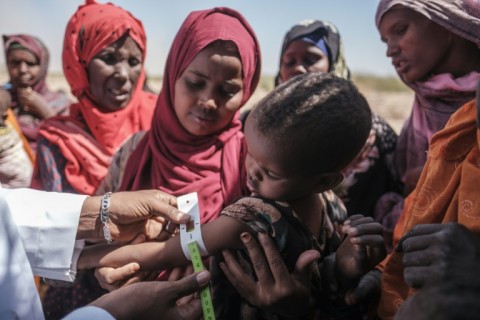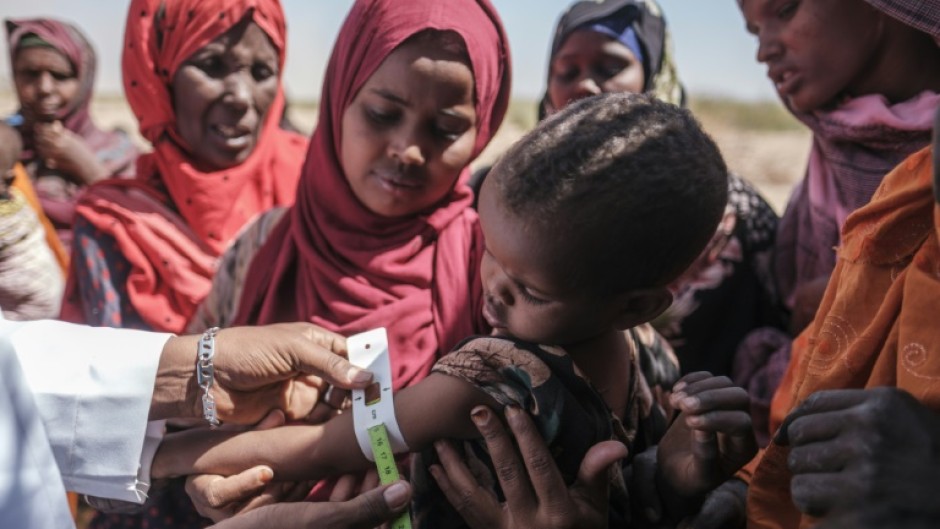
UN chief Antonio Guterres on Wednesday called on nations to immediately ramp up funding to prevent a "catastrophe" in the Horn of Africa, which is suffering its worst drought in generations.
The United Nations says that more than 43 million people across Somalia, Ethiopia and Kenya are in urgent need of lifesaving and life-sustaining assistance.
"Without an immediate and major injection of funding, emergency operations will grind to a halt, and people will die," Guterres told a conference in New York, where world governments gathered to seek $7 billion to help those in need across the region.
The secretary-general said only 20 percent of the UN's humanitarian response plan for the region was funded so far. The UN humanitarian agency OCHA has said that amounts to only $1.63 billion pledged.
"This is unacceptable," Guterres told delegates.
"We must act now to prevent crisis from turning into catastrophe," he added, recalling that last year donor countries delivered vital help to 20 million people in the region and helped avert a famine.
Since late 2020, countries on the Horn of Africa -- Djibouti, Ethiopia, Eritrea, Kenya, Somalia, South Sudan and Sudan -- have been suffering the worst drought in 40 years.
Five failed rainy seasons have left millions of people in need, decimated crops and killed millions of heads of livestock.
More than 23.5 million people are enduring high levels of acute food insecurity in Ethiopia, Kenya, and Somalia, according to the OCHA, the UN humanitarian agency,
In Somalia alone, which is also in the throes of an Islamist insurgency, the number of people displaced now stands at 3.8 million, with 6.7 million people struggling to find food, according to the UN and Norwegian Refugee Council.
More than half a million children are severely malnourished, they added.
Deaths from hunger are on the rise in Africa because of droughts worsened by climate change and conflict, UN officials and scientists say.
The devastating drought in the Horn of Africa could not have occurred without the effects of greenhouse gas emissions, the World Weather Attribution (WWA) group, an international team of climate scientists, said in a report released in April.
Guterres said people in the region were "paying an unconscionable price for a climate crisis they did nothing to cause."
"We owe them solidarity. We owe them assistance. And we owe them a measure of hope for the future. This means immediate action to secure their survival.
"And it means sustained action to help communities across the Horn adapt and build resilience to climate change," he added.
Islamic Relief Worldwide, a British-based NGO, pledged $18 million at the conference and called on global leaders to step up their response to the crisis.
By Nicolas Revise

